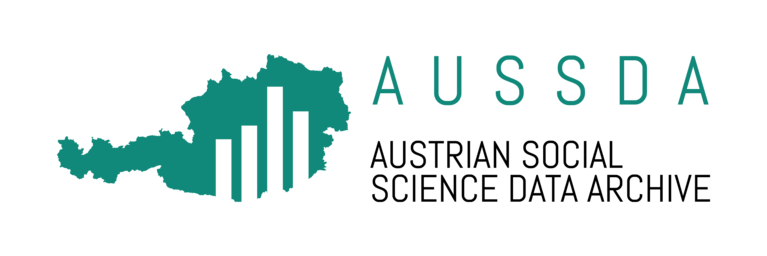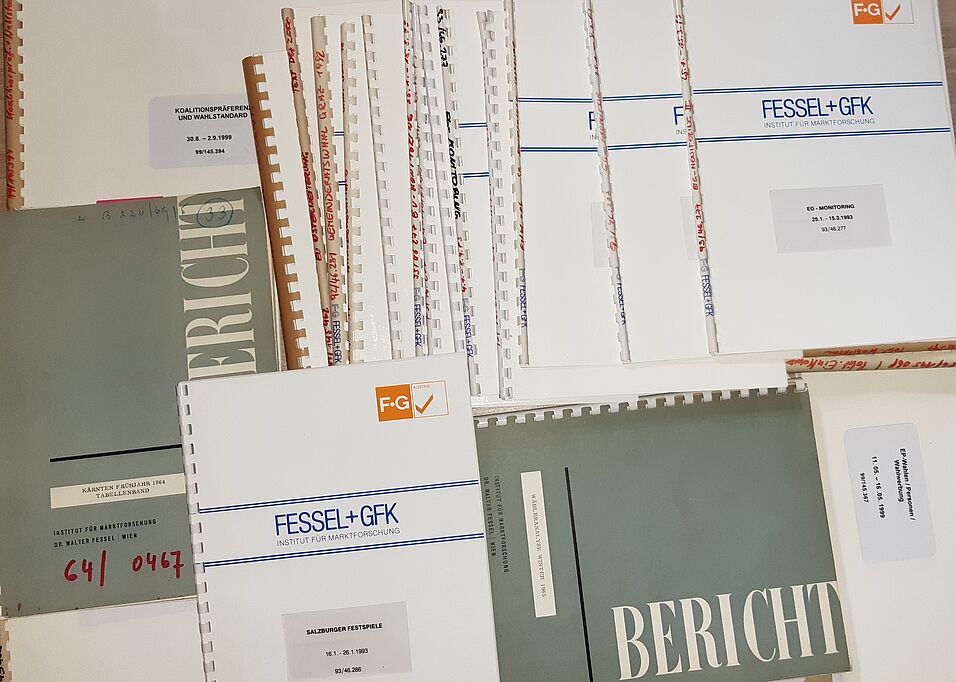How did Austrains accept the euro around the turn of the millennium? What were the results of the popular education survey in 1953? And what were the party preferences in Hungary in 1990? The market research institute GfK Austria, formerly the Fessel Institute, conducted research on economic, political and social questions like these from 1950 onwards. AUSSDA now makes another part of GfK Austria's social science archive available for non-commercial research.
We already published the first digitized surveys last year. Now we are taking the next step: You can now find 371 new entries on GfK Austria in our dataverse.
If you would like to work with these surveys, please contact us at info@aussda.at. We will be happy to provide you with more information on studies you are interested in and digitise the corresponding research data on request - using the E-Books on Demand service of the Vienna University Library. The data can be table volumes, text commentaries or graphic volumes.
And we constantly add new datasets to our dataverse: Our team screens and archives GfK studies that comprise several thousand publications. We will keep you up to date on the progress of the project.
Some remarkable studies that we have come across are:
- Popular education survey 1953
- Survey on the chances of a new daily newspaper in Upper Austria 1958
- Consumer shaving survey 1960
- Life Style: Smoking behaviour 1988
- 6 entries on party preferences Hungary 1990
- 5 entries on the New Democracy Barometer 1993
- 10 entries on Euro acceptance 1999-2000
- 27 entries on EU eastern enlargement 1998-2000

